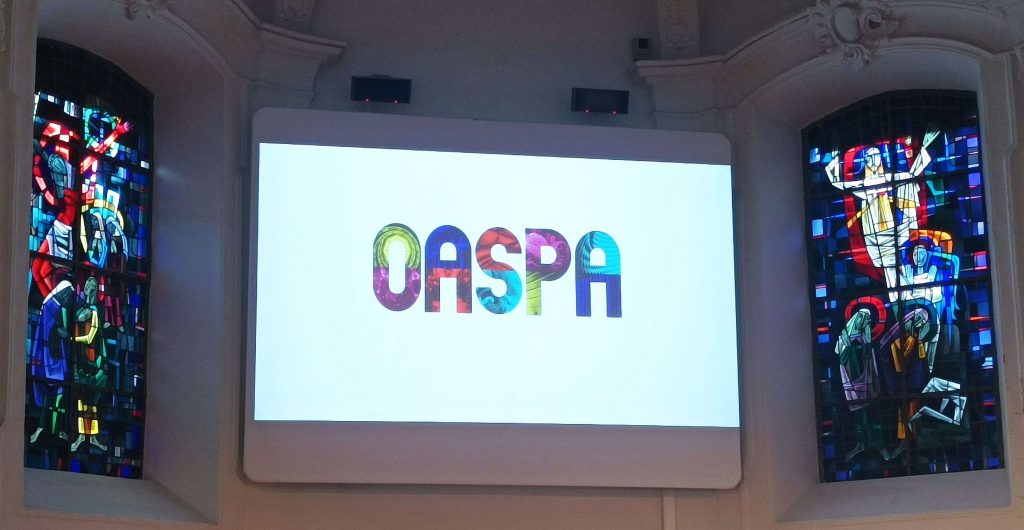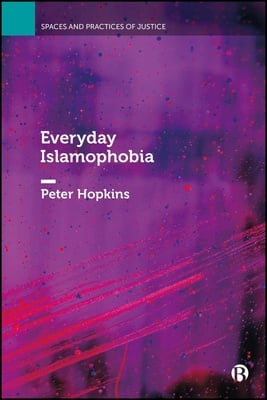In September 2025, I was given the opportunity to attend the OASPA Conference, held at the Irish College Leuven, Belgium. The conference promised a range of perspectives on the current open access (OA) landscape and how to move forward towards a goal of 100% OA. The sessions involved a lot of passionate discussion, considering the differing attitudes and priorities of stakeholders, from commercial publishers to non-profit publishers and open platforms, librarians and academics, and policy makers, and how ideas vary around the world.
In this post I reflect on how such topics as funding, policies and equity in OA can be addressed, and what that might mean for the work we do at Newcastle.
Themes
The core questions around OA of why, what for, for who and how ran through all the sessions, and with that some key areas emerged:
The conference opened with a panel discussion looking at ‘Who owns open knowledge?’. The discussion was focused on the idea that, following the Universal Declaration of Human Rights, article 27, access to knowledge is a human right, but not everyone has access to or benefits from the knowledge that is produced.
With international contributors, we heard of the different priorities involved and how that shifts the power and who sets policies and rules around OA. With changes to priorities, there can be risks and costs involved, and not everyone is in a position to embrace those risks. This may be due to paywalls, censorship and gatekeeping of information, as well as global inequity and lack of infrastructure.
The session entitled ‘Complexity and impacts of transitioning from hybrid to 100% open access’ brought together commercial and not-for-profit publishers to discuss Read & Publish (R&P) deals, often called transitional agreements, to consider if they are suitable for the current OA landscape. While they work for some journals and publishers, there was a consensus that they don’t work for all. Article processing charge (APC) based models require someone to pay for the publication, and globally there’s an increase in publishing, but there is not an increase of money in the system. There’s also a lack of trust, as seen by fully open access publisher in the session ‘Views from fully open access journals using APCs’ as people question the costs and charges involved and look for transparency in the process.
Publishers are trailing different models, such as subscribe to open (S2O) and diamond initiatives, and also looking beyond the article, to where value can be added throughout the research. One session considering scaling inclusive OA models, including representatives from non-profit scholar led initiatives. There are established platforms, such as Open Journals Collective, who are working with communities to build awareness, as well as platforms, such as BioOne, acting as aggregator for society publishers and offering mixed models, to present scalable alternatives to APC models.
Trust continues to be an issue, e.g. from high APCs and predatory publishing. New models can be considered risky, and a lot of work in diamond and scholar led publishing can be undervalued. In order to grow and develop, diamond models may need to think in a commercial way, with sales and marketing and development etc, so they can compete with big publishers and the expectations from libraries and the research community.
- Equity, Inclusion and global voices
Throughout all the sessions, the globalisation of research outputs was highlighted. There were informative talks from representatives across the globe, including China, Japan, Canada, India, Australia, USA, and the Netherlands, focused on their various OA policies and publishing practices. Through these we heard of the differing priorities, depending on, for example, government involvement, availability of funds to pay APCs or build infrastructures, and how these affect the attitudes of researchers. Periods of political uncertainty also bring challenges, e.g. in the USA currently, and this adds to the confusion and trust issues around making work open and that it will remain accessible.
Publishers have seen an increase in research outputs, including from countries that don’t have or haven’t developed OA policies and infrastructure, and with this brings challenges of global diversity and economy. The increase in publishing is not matched with an increase of money in the system, in part leading to the question of if all the outputs need to be published in journals, and if this the best way to disseminate the information.
In some fields, there continues to be uncertainty with self-archiving / green open access, despite evidence of benefits, and so authors continue to choose to publish gold open access, perhaps out of perceived publishing safety or lack of awareness of their options.
One session was directed toward ‘Depressurising Publishing’ and researcher incentives and integrity on the journey to 100% OA. The idea of ‘publish or perish’ was reviewed, with research assessment typically based on journal outputs, driving an increase in publishing output and adding pressure into the system. Many academics also expect to peer-review work, but may not have sufficient time, guidance or reward for doing so. Following this, another panel session looked at the role funders and their mandates have on OA. Through the global perspectives of the panel, we heard how funder mandates provide a strong incentive to get people to deposit OA, as change is often brought about by external influence, but there is a lack of personal incentive, and this often results in complying for the sake of complying.
The Keynote speaker from the Wellcome Trust gave the example of how their policy has changed and adapted over time, with different publishing models and external factors. They addressed the need to embrace multiplicity and diversity in the system, and how they’re trying to do this while maintaining their primary focus on improving the dissemination of information relating to health.
Therefore, there is a need to look away from mass production with ‘quantity over quality’ but to cultivating the knowledge, providing context, attribution, history and understanding. With that, we need to ensure that those certifying the knowledge are the most appropriate, leading to a call for being transparent and using community driven frameworks of responsible openness, such as DORA and CoARA, and considering CRediT and FAIR principles. These are practices we support at Newcastle.
The final session considered the role of ‘The library at the heart of the open access transition’. This looked at the day-to-day challenges faced by libraries when navigating the OA and scholarly communication landscape for the benefit of researchers, while managing the funds available.
It was noted that because of different priorities, there can be a lack of collaboration and clarity. Libraries are entrusted with funds to support scholarly communication, but budgets are being reduced, and services rationalised. Academics are often focused on the short term, e.g. with career progression, and Publishers are traditionally looking at knowledge as something to sell. For things to change, libraries may need to have a louder voice, as it is not just about managing APCs and funding, it’s about understanding what researchers want and how the library can best serve and advocate for that.
Conclusions
The open access landscape has changed and developed over the years, and there is still work to be done, both institutionally and globally so that everyone can benefit from OA content. Conferences such as this from OASPA allow people to have open discussions, bring awareness, share experiences and provide opportunities for future collaboration. From the discussions and themes presented, we can see that there are challenges ahead to reduce the burden for researcher, while helping them to take ownership of their work, as well as a need for greater transparency across all areas.
I will be reviewing the training offered around OA to share the discussions and case studies heard at the conference. We will continue to evaluate the agreements offered by publishers to ensure that they’re offering the best deals for colleagues at Newcastle, and we are investigating and looking to investing in non-APC models, where they align with our core values.






